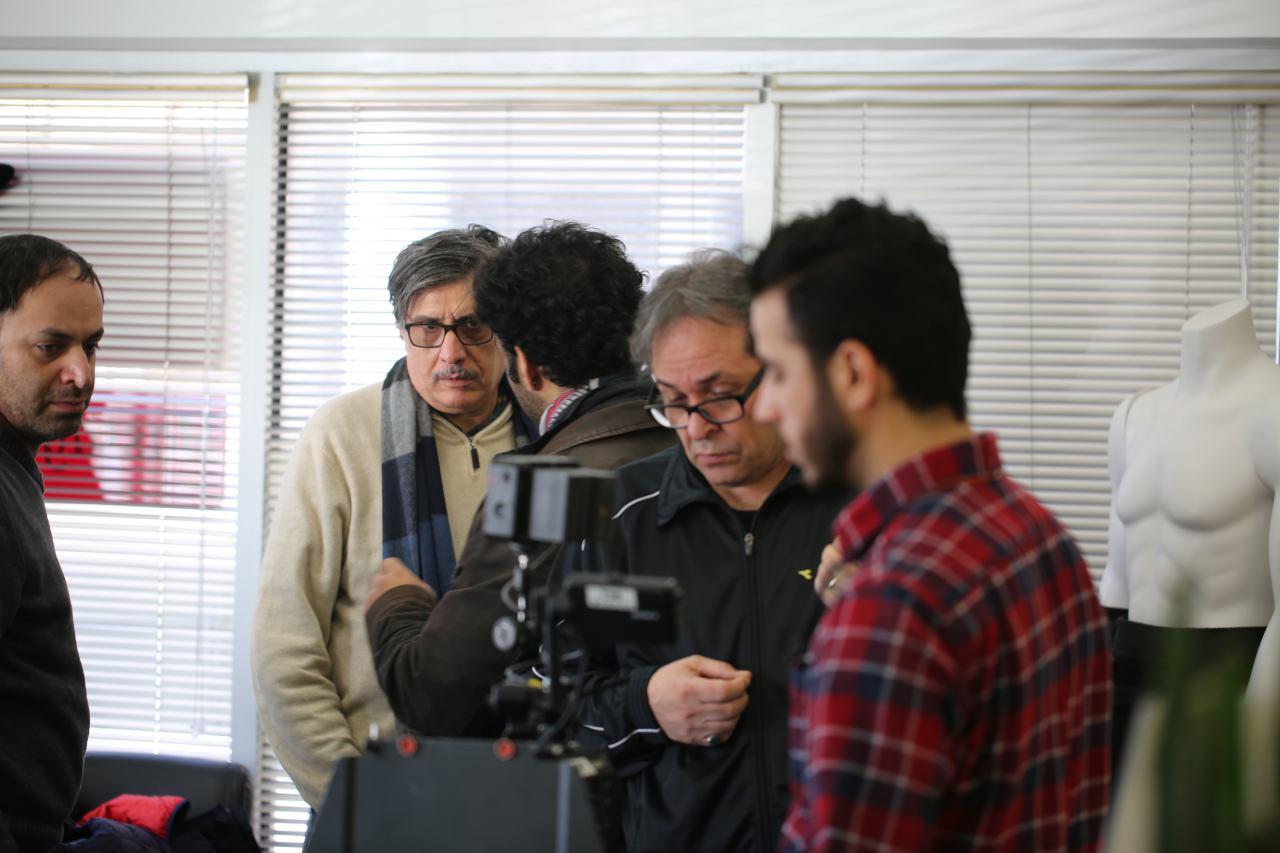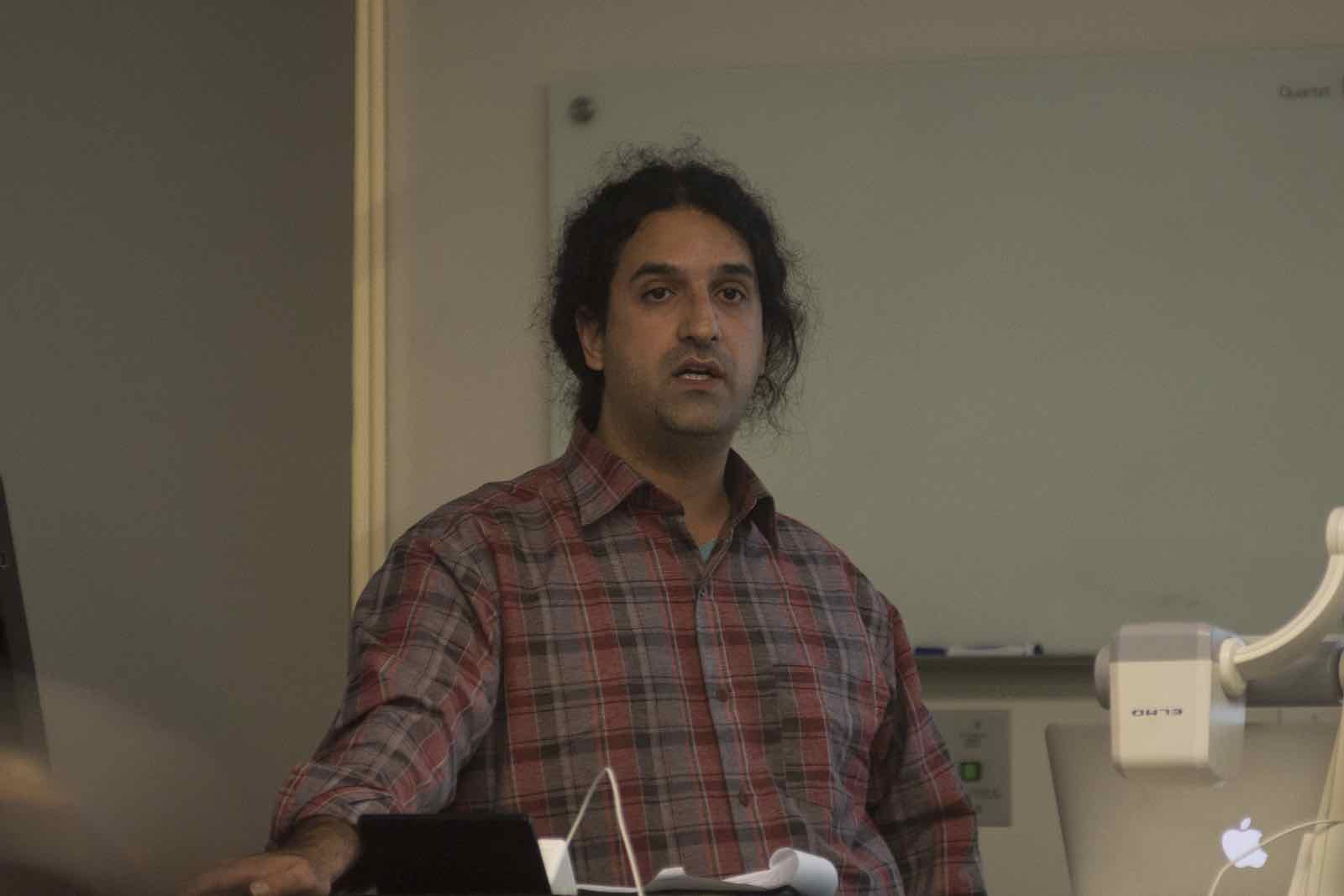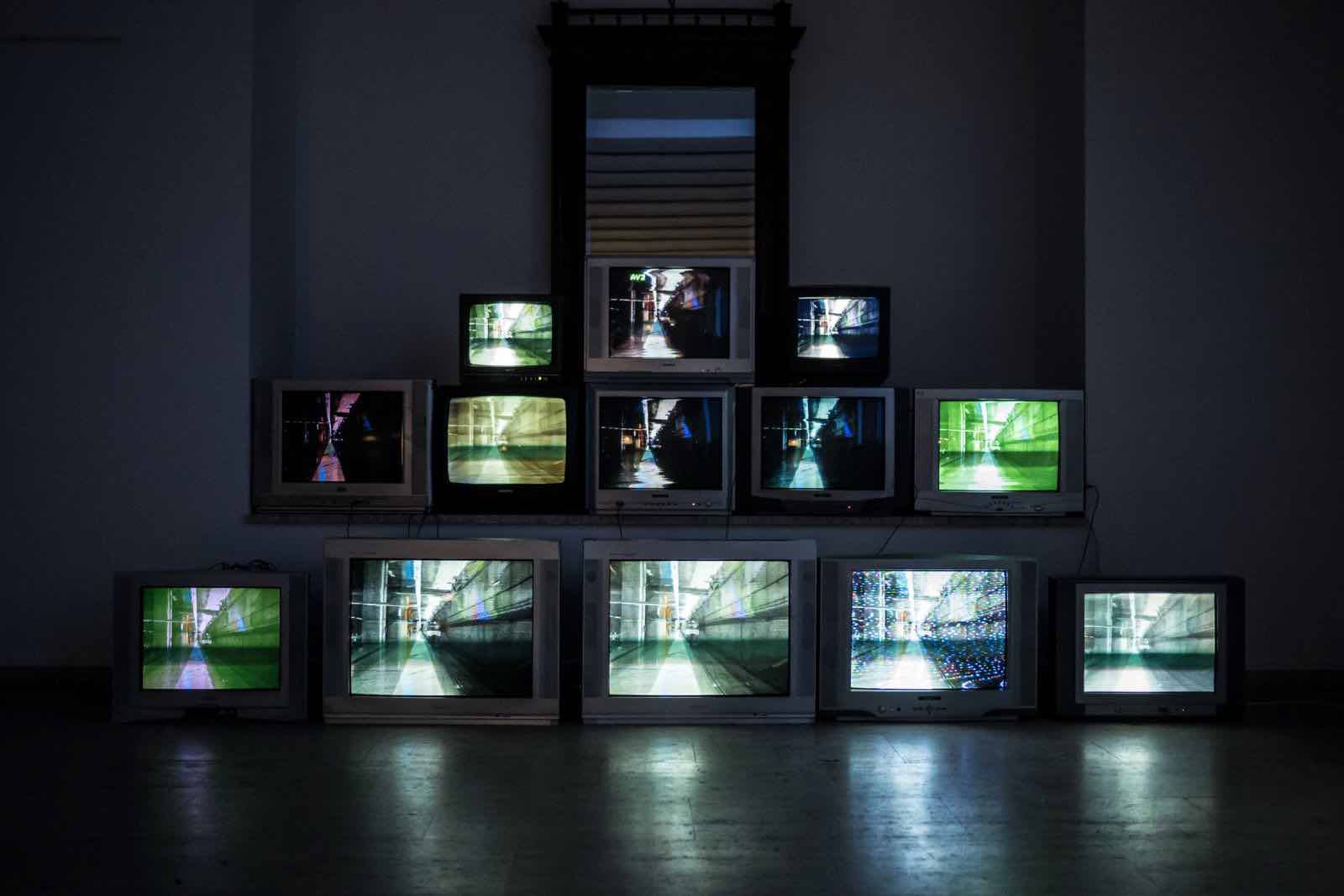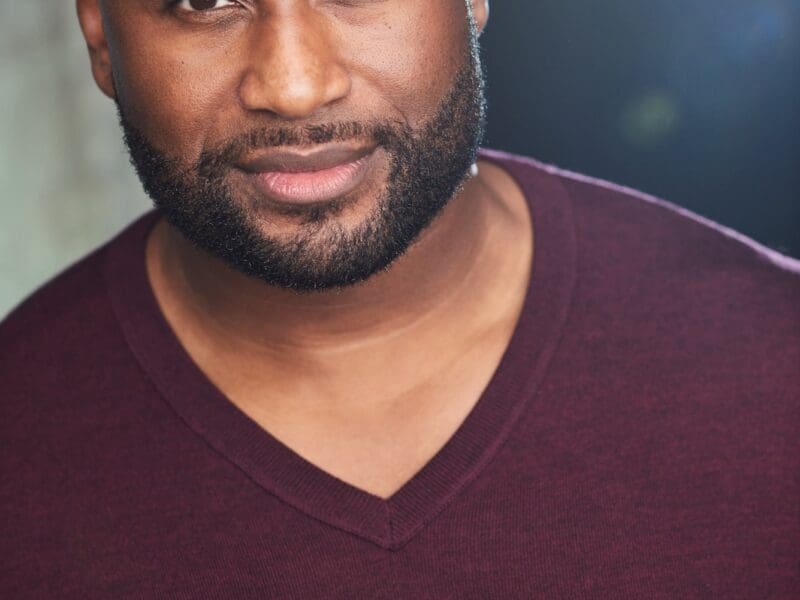
Amir Ganjavie director of ‘Pendulum’: Everything you need to know
Pendulum is Amir Ganjavie’s directorial debut. The film is about a couple who immigrated from Iran to Canada. Shabna (Hailey Imany), finds herself pregnant, and as a model becomes worried this will affect her career.
She also worries her husband Amirali (Naeim Jebeli) is more interested in having a child than he is a family. Tensions become extremely high and both of them lose their jobs.
We were given the great opportunity to interview Amir Ganjavie about Pendulum, as well as various aspects of filmmaking. Ganjavie’s thoughtful and insightful answers to all the questions we asked sheds a new light on his film Pendulum, and provides a wonderful perspective on the world of making movies.

On making Pendulum
Tell us about your history as a filmmaker. How did you start your journey?
Pendulum was my directorial debut. I have always been deeply interested in cinema, and I followed that passion by writing about films and cinema both in academic journals and film magazines, and Pendulum was an opportunity for me to use the knowledge and experience I had gained from writing about films, and I had the chance to express that experience through a cinematic language.
When I decided to make Pendulum, all of those experiences found their way to the production, one way or another. However, I wanted to put aside the theories I had learned, and focus on the film as a unique cinematic experience that narrates a story.
How was working on Pendulum? What did you learn from the experience?
Making Pendulum was an experience for which I used the help of renowned artists as well as volunteers. We shot the film with a low budget, and it taught me that to make a film, you can use the help of volunteers the best, as you gain experience.
Sometimes you think that if you had a big budget, you would be able to make a great film, but the budget is not the decisive element. What is more important, and what drives the production forward, is the love and passion for the film, and also having a team with the same mindset who believe that they can do it.

Pendulum is an Iranian film completely free of restraints and self-censorship. Was it easy to make?
When I first thought about making a film in Canada, I promised myself that I would follow Canadian standards and criteria since it was not going to be distributed and screened in Iran. I have a close connection with my friends who work in the Iranian film business and I invited many of them to Canada for reviewing sessions.
There were also people whose opinions and ideas I never liked but I invited them too because they are loved by most Iranians who are interested in cinema. I respect all of their films and their opinions because I believe that there are aspects of their works which are worthy of consideration but which I might not have noticed before.
I’m deeply interested in philosophy and have read numerous philosophical texts. I consider John Stuart Mill to be the most outstanding political thinker and something important that I learned from his writings is that you should respect other people’s opinions under any circumstances. You should give them a chance to express themselves even if you don’t agree with them.

The only way to coexist is to resort to democratic thinking. One can see this in a free, pluralistic society such as Canada. Unfortunately, everything is considered political in Iran today, and everybody is considered to be either black or white in their views, a situation which has become even more extreme in recent years. Labeling people has become increasingly normal in our culture today and when someone succeeds in whatever they are doing we try to destroy their life and reputation, often by accusing them of different things.
I personally don’t like this way of thinking because I’m one of those people who believe that good art cannot be created with censorship. Artists must have complete freedom to express themselves. That’s why I tried not to think about the censorship system in Iranian cinema when we started making Pendulum, and I focused on how this story is about an Iranian couple who immigrated to Canada and are living here and, just like other human beings, they enjoy food, sex, and socializing.
You co-wrote and co-directed Pendulum with Mostafa Azizi. How did you manage to do it?
Mostafa Azizi has had several years of experience in cinema and he has made several important television shows in Iran. He is also a renowned political activist who was once sent to Evin Prison for insulting the supreme leader of Iran. Working with him was really pleasant and he taught me many things about cinema. His political views made it possible for us to show the complexities of all the characters in the film. When I missed something or needed help, he was there to support me.
Naturally, working as a team has its challenges, especially when a film has two directors. We had our disagreements but we always tried to talk it over and resolve the issues. One of Mostafa’s greatest traits is his willingness to talk. We tried to talk about these challenges and reach a middle ground.
Sometimes we had big disagreements and would not talk to each other for a couple of days but we always tried to be reasonable. When the time came to shoot the film, we had resolved all of our differences and these challenges had no effect on the process of shooting the film.

Where did the concept come from for Pendulum?
The idea for Pendulum formed in my mind as I was thinking about this saying by Hegel, that whatever someone does, they have reasons and beliefs for that action, and these reasons are important to them, as they believe that what they think is right, and they are willing to fight for it. Nowadays, with the process of politicization of art, we ignore [the] multi-perspective aspect of life.
One of the reasons that Shakespeare became popular is that one feels he is not only speaking from the perspective of one person, but he expresses the ideas and opinions of everybody involved, and this makes his works beautiful. That is what I wanted to achieve with Pendulum.

On filmmaking in general
Tell us about your career before you found film.
Before I stepped into film production, I had spent a great amount of time organizing and holding events and festivals in Toronto. I am the founder of two annually held festivals in this city, namely Cyrus International Film Festival, and Phoenix International Comedy Film Festival. I also have several years of experience in films distribution, and I have been writing about cinema for years now, and my PhD study was also related to cinema. All of this influenced and inspired me when I started making this film.
Tell us about your history as a filmmaker. How did you start your journey?
Pendulum was my directorial debut. I have always been deeply interested in cinema, and I followed that passion by writing about films and cinema both in academic journals and film magazines, and Pendulum was an opportunity for me to use the knowledge and experience I had gained from writing about films, and I had the chance to express that experience through a cinematic language.
When I decided to make Pendulum, all of those experiences found their way to the production, one way or another. However, I wanted to put aside the theories I had learned, and focus on the film as a unique cinematic experience that narrates a story.

Who are your current influences?
As for the inspirations for the way I think about these topics, I have read and written about many artists, and I have met quite a few, and I cannot name only one or two individuals as the inspiration for my approach to filmmaking. But if I wanted to name one film that I always think about, that is Fellini’s La Dolce Vita.
The film reflects the human condition in the modern times, and it offers a unique criticism of communication, or the lack of, in our time, and it has magnificent performances. La Dolce Vita has always been one of my favorite films, and one which has inspired me the most. I can say that I have always been interested in and drawn to the cinema in the 60s.
Talk us through your creative process.
For me, the process of writing a screenplay (and making a film) starts with an idea. Here, the idea of abortion, and man’s rights regarding the topic, started the process, and then I tried to narrate a story.
Therefore, I set an objective, and I think about how characters want to reach that objective, and who can help the characters reach it and who are against it, and then I think about what difficulties we can imagine that might happen to the characters. I write the story based on these characters and these complications.

What part of filmmaking do you geek out about the most?
The most interesting part of filmmaking is the acting process and working with actors. To think about how I can work with the actors so they can act out what is written in the screenplay in the best way possible. There are not many theories about what good acting is, and it is difficult to explain what good acting is, and people have different opinions of what they think is the perfect performance by actors.
Some people believe that if the actors can perfectly express themselves verbally, then we have good acting. For others, it is to find honesty in their performances. It’s subjective, and we don’t have fixed formulas, and it makes the whole thing a complicated matter, and this complexity makes acting and working with actors an interesting process for me.

What’s your filmmaking mission? Name the most important thing you want viewers to experience when watching your movies.
My most important goal in filmmaking is to introduce the audience to different theories and opinions through these stories. I believe that if cinema could have multi-perspectivism, with different voices being heard, then we can create a dialogue which, then, leads to a better understanding of others, and ourselves, and this understanding plays an important role in making people aware of problems around them.
If we are familiar with other perspectives and opinions, then our understanding of the world, and our identity, would be more complete and only art could help us to understand others. If I help people move towards this understanding, then I have contributed to cinema and art.

On inspiration
What five TV shows do you think everyone should watch this year?
The Sopranos is one of the finest TV shows of all time, and it’s a must-watch for everyone. Apart from that, Game of Thrones is also a great show in television history. These are two of the most important experiences found on television.
One can see the influence of cinema in both of these shows, especially The Sopranos, and by analyzing these shows, we can see how the pop culture influences our lives. Game of Thrones is also significant for its narration, and its attempts to break away with traditional narratives. There are other shows that are worth watching, such as Westworld, Sherlock, and Mad Men.

What music inspires you to create?
My favorite type of music is classical music, and modern classical works are especially interesting and inspiring because of the ambiguity found in these works, because they give us the possibility of interpreting the pieces in various ways.
Cat or dog?
Cat.
What’s your five-year plan?
My most important goal for the next five years is to make a film that resonates very well with my thoughts. I hope of making a film that makes me calm, a film in which a part of me lives, a film that I think of as my child . . .







